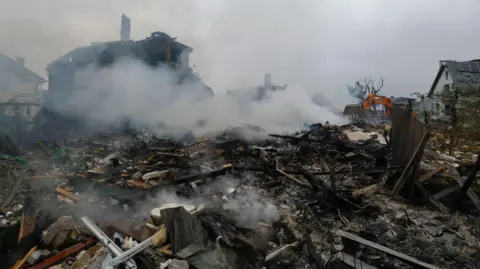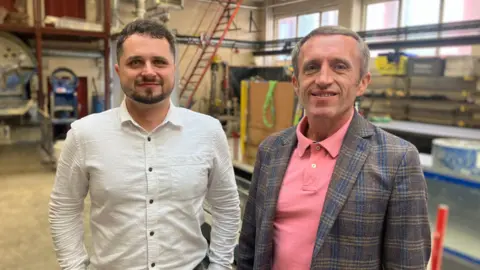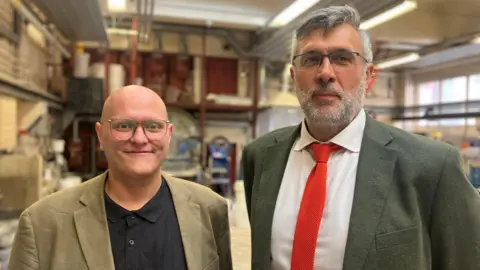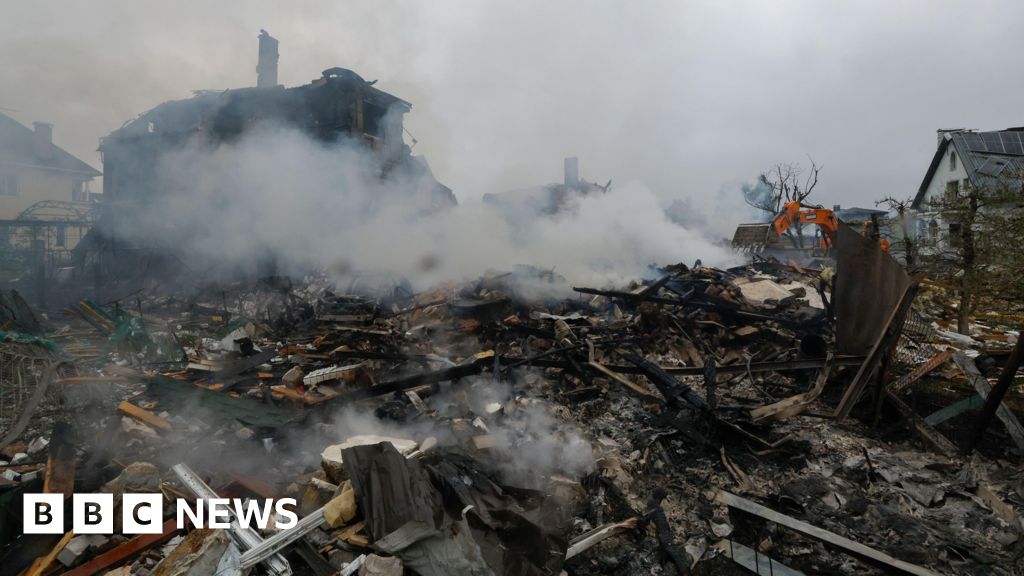Elizabeth BainesYorkshire
 SERGEY DOLZHENKO/EPA-EFE/Shutterstock
SERGEY DOLZHENKO/EPA-EFE/Shutterstock
It is estimated more than 150,000 buildings and structures have been lost since the conflict between Russia and Ukraine began
Technology developed by researchers from Leeds will be used to recycle rubble in Ukraine left by the country’s ongoing conflict with Russia.
Academics at the University of Leeds have partnered with Lviv Polytechnic National University (LPNU) to share ways to repurpose debris into high-quality building materials.
Wreckage remnants are typically sent to landfill or reused as low-grade hardcore, backfill or landscaping materials.
Dr Oleksii Hunyak, associate professor at LPNU, said the work would “directly contribute to the safe and rapid recovery of Ukraine”.
It is estimated more than 150,000 buildings and structures have been lost since the conflict between Russia and Ukraine began in 2022.
According to the United Nations Development Programme, the cost of rebuilding is thought to be hundreds of billions of pounds.
“There is a lot of destruction,” said Dr Hunyak.
“There is no safe city in Ukraine; it is devastating.
“Residential buildings are most affected but bridges, power plants and roads have been destroyed.
“It is heartwarming to understand that we can do something practical that can make an impact.”
 BBC/Elizabeth Baines
BBC/Elizabeth Baines
Dr Oleksii Hunyak and Prof Taras Markiv visited the University of Leeds to understand how technology pioneered in Leeds, could help rebuild their home
Dr Hunyak and his colleague Prof Taras Markiv visited the University of Leeds to share academic research and understand how technology pioneered in Leeds could help rebuild their home.
Prof Markiv said: “Two years ago a missile fell not far from my apartment – all of the windows were shattered, our front door was blown out – my children were scared.
“I would like to say that I have done my best to rebuild our country.
“We will bring the information from the UK and share with our colleagues.”
The technology includes a mobile advanced dry recovery processor, which fits on the back of a lorry and travels to bomb sites to recycle materials on-site.
At each location it upcycles concrete from bombed buildings by separating the damaged material into sand, stone and cement.
The system will be deployed in Ukraine through the Safe, Sustainable and Swift Reconstruction of Ukraine (S3RoU) programme.
S3RoU is backed by the InnovateUkraine programme, led by the Foreign, Commonwealth and Development Office, and is funded by a £16m investment from the UK government.
 BBC/Elizabeth Baines
BBC/Elizabeth Baines
Prof Leon Black and Prof Theodore Hanein said the research could go beyond Ukraine and promote world-wide sustainable practice
Due to the sheer scale of debris in the war zone, traditional methods to reuse “end-of-life” building materials are not feasible.
“There is just too much,” said Leon Black, professor of infrastructure materials at the University of Leeds.
“This offers a valuable opportunity to share knowledge while promoting environmentally sustainable rebuilding practices.”
University of Leeds chair of construction materials science, Prof Theodore Hanein, added: “The effects of this project can go beyond Ukraine.
“The technology can be used world-wide; it is very important.”

